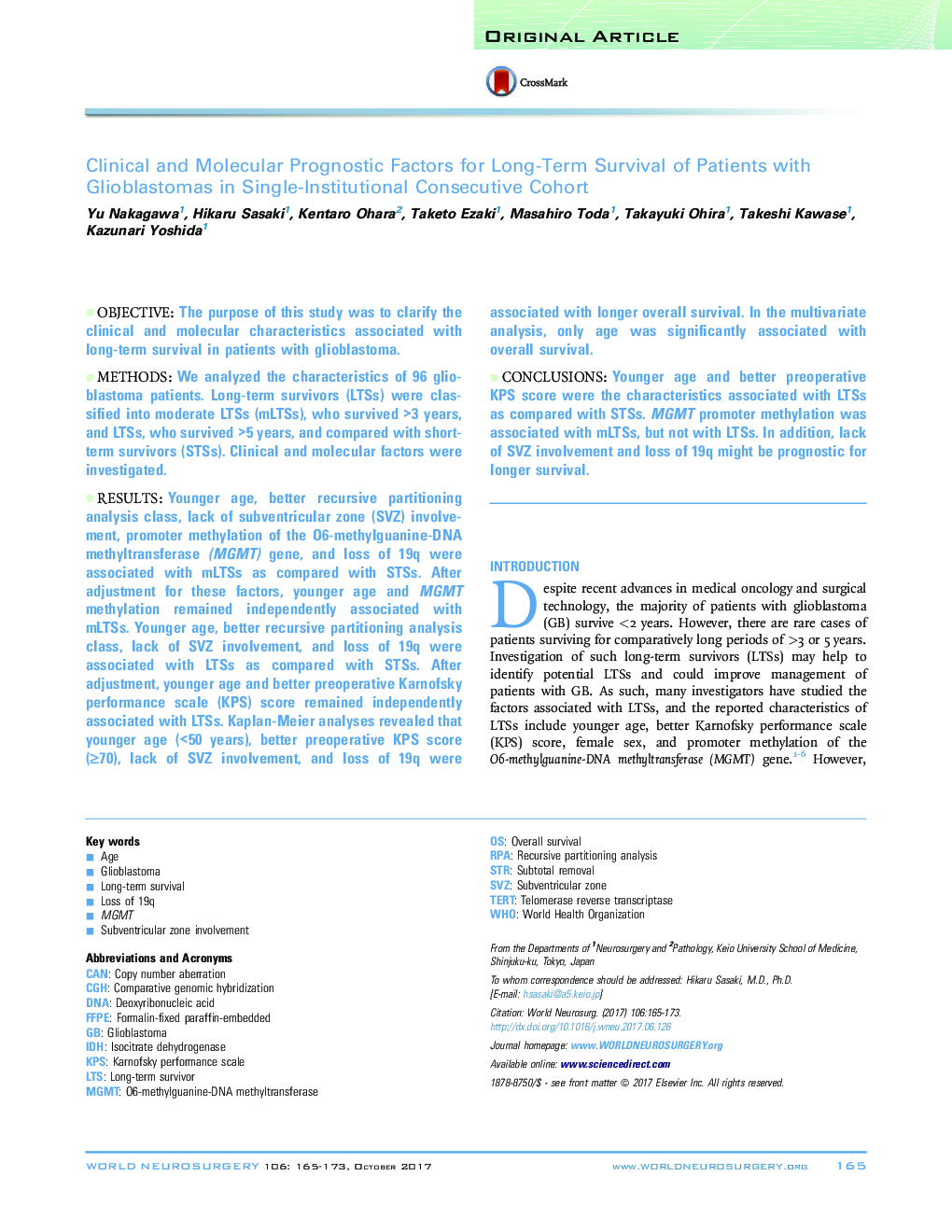| کد مقاله | کد نشریه | سال انتشار | مقاله انگلیسی | نسخه تمام متن |
|---|---|---|---|---|
| 5633976 | 1581449 | 2017 | 9 صفحه PDF | دانلود رایگان |
ObjectiveThe purpose of this study was to clarify the clinical and molecular characteristics associated with long-term survival in patients with glioblastoma.MethodsWe analyzed the characteristics of 96 glioblastoma patients. Long-term survivors (LTSs) were classified into moderate LTSs (mLTSs), who survived >3 years, and LTSs, who survived >5 years, and compared with short-term survivors (STSs). Clinical and molecular factors were investigated.ResultsYounger age, better recursive partitioning analysis class, lack of subventricular zone (SVZ) involvement, promoter methylation of the O6-methylguanine-DNA methyltransferase (MGMT) gene, and loss of 19q were associated with mLTSs as compared with STSs. After adjustment for these factors, younger age and MGMT methylation remained independently associated with mLTSs. Younger age, better recursive partitioning analysis class, lack of SVZ involvement, and loss of 19q were associated with LTSs as compared with STSs. After adjustment, younger age and better preoperative Karnofsky performance scale (KPS) score remained independently associated with LTSs. Kaplan-Meier analyses revealed that younger age (<50 years), better preoperative KPS score (â¥70), lack of SVZ involvement, and loss of 19q were associated with longer overall survival. In the multivariate analysis, only age was significantly associated with overall survival.ConclusionsYounger age and better preoperative KPS score were the characteristics associated with LTSs as compared with STSs. MGMT promoter methylation was associated with mLTSs, but not with LTSs. In addition, lack of SVZ involvement and loss of 19q might be prognostic for longer survival.
Journal: World Neurosurgery - Volume 106, October 2017, Pages 165-173
